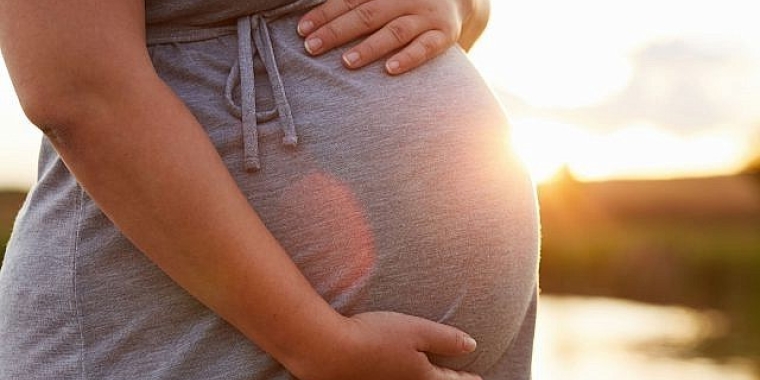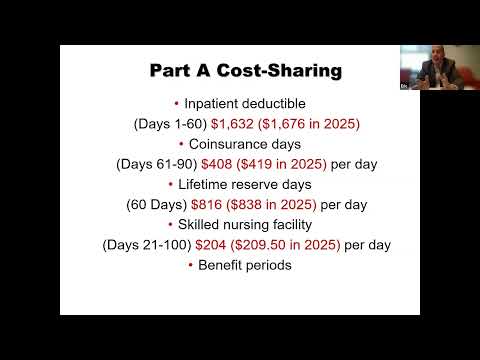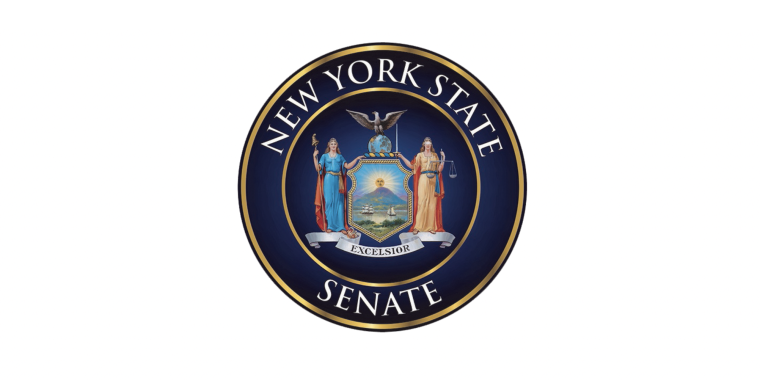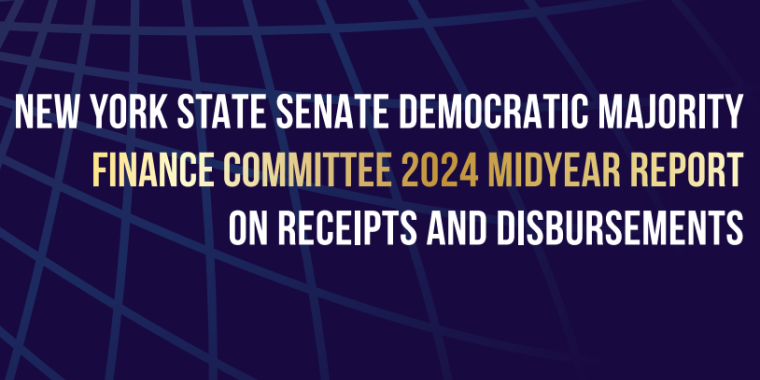
Krueger, Barrett, O'Donnell Introduce Alternative Surrogacy Bill
February 14, 2020
-
ISSUE:
- Surrogacy
- Assisted Reproduction

Albany – Today, State Senator Liz Krueger and Assemblymembers Didi Barrett and Daniel J. O'Donnell announced the introduction of legislation (S.7717) to legalize and regulate compensated gestational and genetic surrogacy, as well as establish necessary protections for all parties involved in egg- and sperm-donations and assisted reproduction.
“Surrogacy can be a satisfying and positive experience, but it is also a complex physical, emotional, and legal process with the potential for serious negative outcomes.That is why it is vital to have protections in place for everyone involved, especially low-income people. Previous legislative proposals have not fully addressed concerns that I and many advocates have," said Senator Krueger. "We need to clarify the law in this space in order to make an array of assisted reproduction options available to New Yorkers while also protecting the health, safety, interests, and rights of all parties, including intended parents, people acting as surrogates, egg- and sperm-donors, and children. I believe this bill takes the right approach to addressing these needs.”
"This new bill seeks to address the very complex and emotional issues surrounding surrogacy and assisted reproduction with protections for all the parties who may be involved, including intended parents; egg and sperm donors who may or may not be the intended parents; people acting as surrogates; and the children born from these agreements," said Assemblymember Barrett. "We believe we can support New Yorkers who want to build their families in the ways that work best for them, and at the same time ensure the health, safety and well-being of those New Yorkers – largely young women – who help create these families by being donors and surrogates."
“Choosing to have a child can be a beautiful and highly personal life decision," said Assemblymember O'Donnell. "Through advancements in medicine, that choice has been expanded to include intended parents that deal with infertility, same-sex couples, and others that cannot conceive. I’m proud to be part of the effort to remove the barriers to surrogacy, and to ensure that these impactful agreements are done with the intended parents, surrogates, and most importantly – the child – in mind. The proposed legislation addresses many of the concerns surrounding surrogacy, and ensures that informed consent and agency of all parties involved is respected. The legislation is long overdue, and ensures that surrogacy is implemented as a safe, fair, and transparent process. I look forward to the legalization of surrogacy in New York State.”
S.7717 differs from existing proposed surrogacy legislation (S.2071-B) in several significant ways:
Gestational and Genetic Surrogacy:
- S.2071-B legalizes and regulates compensated gestational surrogacy and gestational surrogacy agreements (in which the person acting as a surrogate is not genetically related to the fetus), but does not legalize compensated genetic surrogacy (in which the person acting as a surrogate uses their own egg, and is genetically related to the fetus), and genetic surrogacy agreements remain unenforceable.
- S.7717 legalizes and regulates both compensated gestational and genetic surrogacy and surrogacy agreements, as well as third-party gamete provision agreements (ie egg- and sperm-donation agreements).
Judgment of Parentage:
- S.2071-B requires a judgment of parentage in the case of a gestational surrogacy agreement, in which the intended parent or parents become the legal parents of the child immediately upon birth.
- S.7717 requires both an acknowledgment of interim parental responsibility and a judgment of parentage. The acknowledgment of interim responsibility becomes effective on the birth of the child, and calls for the person acting as surrogate and the intended parents to share decision making during an 8-day period. No sooner than 8 days after the birth of the child, the person acting as surrogate must submit to the court a notarized declaration that they are voluntarily renouncing their parental rights, at which point the judgment of parentage becomes effective and the intended parents become the sole legal parents. The process is similar in the case of genetic surrogacy, except that an adoption proceeding is used in place of the judgment of parentage to establish the intended parents as the legal parents.
The Surrogacy Agreement:
- Both bills address eligibility criteria, agreement requirements, termination of agreements, parentage, insufficient agreements, absence of agreements, and disputes.
- In S.2071-B:
- An intended parent or surrogate must be a US citizen or permanent lawful resident.
- Intended parents must pay for a health insurance policy for the surrogate that covers major medical treatments and hospitalization throughout the pregnancy and for 26 weeks after birth. Intended parents are also responsible for out-of-pocket medical expenses throughout the pregnancy for 12 weeks after birth or termination of the pregnancy, which can be extended for up to 6 months if a pregnancy-related medical complication is diagnosed within 12 weeks after birth or termination of the pregnancy.
- The surrogate, the surrogate's spouse, or an intended parent may only terminate the surrogacy agreement prior to the surrogate becoming pregnant.
- In S.7717:
- Intended parents and surrogates must be US citizens or permanent lawful residents and residents of New York State for at least 12 months prior to executing the surrogacy agreement.
- In order to be eligible to become a surrogate, a person:
- Must have previously delivered one live birth without complications not as a surrogate
- Must not have delivered more than 3 prior children, whether or not as a surrogate
- Must be free of medical or psychological preexisting conditions that would make the pregnancy high-risk
- May not be over age 35 at the time of conception
- In order to be eligible to enter into a surrogacy agreement, intended parents must undergo medical and psychological evaluations, a home study, and background checks.
- Intended parents must pay for a health insurance policy for the surrogate that covers preconception care, pre-natal care, major medical, hospitalization, and behavioral health care, as well as covering out-of-pocket medical expenses. The coverage must take effect prior to when the surrogate starts taking any medication or commences medical procedures, and provide coverage for 12 months following birth, miscarriage, still birth, or termination of the pregnancy.
- Intended parents must purchase life-insurance and short- and long-term disability insurance for the surrogate.
- A surrogate may terminate the surrogacy agreement at any time during the pregnancy. If this happens, the surrogate is responsible for the return of any financial compensation already received other than payment or reimbursement for medical, legal, and pregnancy-related expenses.
- In the case of insufficient agreement or absence of agreement, guidance is provided for judicial determinations of contractual obligations and parentage, designed to balance the interests of all parties, including the best interests of the child.
Payment to Persons Acting As Surrogates:
- Both bills require reasonable compensation negotiated in good faith, based on medical risks, physical discomfort, inconvenience, and the responsibilities being undertaken by the person acting as surrogate.
- S.2071-B does not specify when the first must be made. The final payment must be made no later than 8 weeks after delivery.
- S.7717 requires first payment when the surrogate starts taking any medication or commences medical procedures, and the final payment made between 6 and 8 weeks after delivery.
Provisions for Egg- and Sperm-Donors:
- S.2701-B does not address third-party gamete provision agreements (egg-, sperm- and embryo-donation agreements).
- S.7717 contains provisions addressing third-party gamete provision agreements, and the rights of gamete providers, that broadly follow the outlines of the provisions addressing people acting as surrogates.
Miscellaneous Provisions:
- S.7717 creates the New York State Office of the Assisted Reproduction Registrar within the NYS Department of Health. The Assisted Reproduction Registrar would be responsible for:
- Administering the central, confidential assisted reproduction registry, which would facilitate tracking and research of assisted reproduction, surrogacy, and egg- and sperm-donor practices.
- Keeping copies of egg- and sperm-donation and surrogacy agreements
- Processing requests for medical and identifying information
- Rulemaking related to surrogacy, egg- and sperm-donation, and assisted reproduction
- Processing registration applications and renewals
Wendy Chavkin, MD, MPH, Mailman School of Public Health, Columbia University, said: "I am so glad that Senator Krueger's bill with Assembly Members Barrett and O'Donnell has been submitted as it addresses the needs and concerns of ALL parties to surrogacy arrangements - the gamete providers, the person acting as surrogate, the resulting child, and the intended parents. New York can be a model for the nation in balancing the health and rights of everyone concerned."
Yasmine Ergas, Director, Gender and Public Policy Specialization, School of International and Public Affairs, Columbia University, said: "Congratulations to Senator Krueger, Assemblymember Barrett, and Assemblymember O'Donnell for introducing a bill that recognizes and respects the rights of all those involved in assisted reproduction and surrogacy arrangements: children, surrogates, intending parents, ova and sperm providers. With this bill, New York can lead the way to fair and effective policy-making, domestically and internationally."
Judy Norsigian, Co-Founder and Board Chair, Our Bodies Ourselves, said: “Our Bodies Ourselves would like to congratulate Senator Krueger, Assemblymember Barrett, and Assemblymember O'Donnell on introducing legislation that will address the needs of ALL parties to surrogacy agreements. As advocates for women’s health and LGBTQ rights for nearly half a century, we are pleased to see a bill that offers so many key features that should become public policy in other states as well.”
Diane Tober, PhD, Bixby Center for Reproductive Health, University of California, San Francisco, said: "As someone who has conducted research on assisted reproduction for decades--and with egg providers for the past 6 years--I am delighted to see this bill. To my knowledge, this is the first piece of legislation to consider the rights of all parties involved: intended parents, surrogates, gamete providers, and donor conceived people. It is particularly exciting to see a registry for gamete providers and donor conceived people, both to help facilitate the rights of donor conceived people to access biological and medical information, as well as to help collect much needed data on egg provider health outcomes. May this be a model for other states. Bravo!"
###
related legislation
Share this Article or Press Release
Newsroom
Go to NewsroomDon't Get Scammed: Learn How to Protect Yourself
November 15, 2024


Questions and Answers about Good Cause Eviction
November 12, 2024

2024 Midyear Report on Receipts and Disbursements
November 6, 2024
